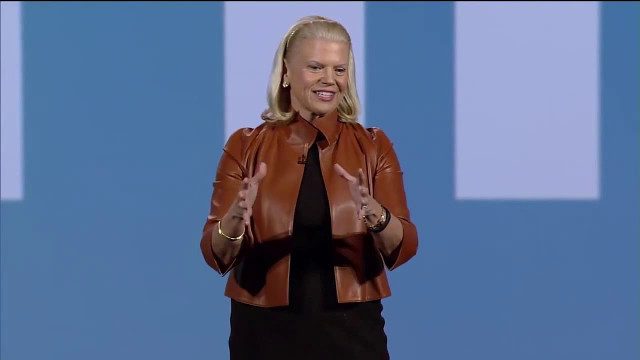
It is the end of an era with IBM’s announcement that CEO Virginia Rometty is retiring. Rometty assumed the role in 2012 and has been attempting to transform the company into a cloud and AI powerhouse. This transformation has been bumpy with IBM losing 22% value during her tenure.
But her acquisitions and steady hand may position IBM for a Microsoft-like resurgence (or she may have led the company to its final stand).
Acquisitions/Investments
- LSI acquires S2P Solutions to solidify its SAP portfolio
The public services transformation company LSI announced today that it will acquire S2P Solutions Ariba Cloud-based business commerce business unit on February 3rd, pending shareholder approval. With the addition of S2P, LSI will continue its leadership in delivering full ERP Cloud solutions to Regulated Industries. The focus of S2P’s business is in procurement, spend management and supplier discovery, and it is considered a leading service provider for Ariba services.
“S2P is a champion in the procurement services market – and they have been instrumental in our strategy to deliver Ariba solutions to our SAP client base”, explained Steve Roach – CEO & President of LSI. “The ERP market is moving to the Cloud and SAP continues to lead the charge. By weaving Ariba (procurement), SuccessFactors (human resources) to the S/4H (digital core) together we are able to meet the needs of State, Local Government, Education, Utilities, Non-for-profits and Healthcare institutions. This acquisition is the next step in our journey to build out the Intelligent Public Enterprise”.
https://www.einnews.com/pr_news/508559866/lsi-acquires-s2p-solutions-to-solidify-its-sap-portfolio
Cloud
- Microsoft Profit, Sales Beat as Cloud Demand Persists
Revenue in the period ended Dec. 31 rose 14% to $36.9 billion, marking the software maker’s 10th straight quarter of double-digit sales growth. Analysts on average had predicted $35.7 billion. Fiscal second-quarter profit was $11.6 billion, or $1.51 a share, Microsoft said Wednesday in a statement. That compared with the $1.32 per-share estimate of analysts polled by Bloomberg. Shares rose 4% in late trading.
Chief Executive Officer Satya Nadella has been trying to narrow the gap in cloud infrastructure with market leader Amazon.com Inc., in both technical capabilities and the caliber of customer it can attract for its Azure products and services. Microsoft’s recent wins include a massive contract with the Pentagon, for which it beat out front-runner Amazon, and a cloud deal with accounting giant KPMG LLP. Microsoft is also pulling in more revenue from Office 365, with companies such as KPMG and Ikea upgrading to the internet-based productivity software. Azure revenue in the recent period rose 62% and Office 365 sales to businesses increased 27%.
Security/Privacy
- FCC: Wireless carriers violated federal law by selling location data
Back in 2018, it came to light that carriers sell their customers’ real-time location data to aggregators, which then resold it to other companies or even gave it away. Last year, a Motherboard report also revealed that bail bond companies and bounty hunters have been buying people’s location data for years, allowing them to use that information to track their targets.
All four major US carriers promised to stop selling customer location data to aggregators after the information first came out. The companies made good on their word, though it took them a year to do so: They informed FCC Commissioner Jessica Rosenworcel that they had already halted sales to aggregators after she requested for an update in 2019.
https://www.engadget.com/2020/01/31/fcc-carriers-violated-federal-law-selling-location-data/
- Hackers are selling card info stolen in last year’s Wawa breach
If you purchased anything at the East Coast gas station and convenience store chain Wawa between March and December last year, there’s a chance your credit and debit card info is being sold on the dark web. Earlier this week, fraud intelligence company Gemini Advisory discovered stolen payment card data being uploaded to Joker’s Stash, an online cybercrime marketplace. It seems the data was obtained during the Wawa breach discovered in December.
As you may remember, last month, Wawa revealed that malware had been swiping customers’ payment card info, possibly since March. It’s believed that 850 stores may have been hit, exposing 30 million sets of payment records, making it one of the largest payment breaches of all time. Cardholders in the US, several Asian countries, Europe and Latin America may have had their data stolen.
https://www.engadget.com/2020/01/30/wawa-breach-stolen-data-sold-online/
- Antivirus company shuts down its data-harvesting arm after getting caught red-handed
The reports, which were the result of a joint investigation between Motherboard and PCMag, detailed how Avast was collecting user browsing data via its antivirus software. This data included Google searches, location lookups, visited URLs along with precise time stamps, and in some cases even specific searches made on porn websites. Although Avast claimed that individual users could not be identified from this data, Motherboard spoke to experts who said that this could be possible in some cases.
Jumpshot claimed to have data from as many as 100 million devices, and it listed some of the world’s largest companies among its clients, including Google, Yelp, Microsoft, and Pepsi. Jumpshot would package this data up into different products, one of which was its “All Click Feed,” which would allow its clients to see all user clicks on individual domains (such as Amazon.com). These clients reportedly paid millions of dollars for Jumpshot’s products, which often included precise browsing data.
Other
- IBM CEO Virginia Rometty is retiring
IBM CEO Virginia Rometty, one of the most prominent female leaders in tech, is stepping down on April 6th, 2020. She will still serve as Executive Chairman of the Board through the end of the year, but she’s retiring completely after that. Rometty will be replaced as CEO by Arvind Krishna, who currently runs the company’s cloud business and who was a key figure in IBM’s Red Hat acquisition. She called Krishna “the right CEO for the next era at IBM.”
https://www.engadget.com/2020/01/30/ibm-ceo-virginia-rometty-is-retiring/
- WeWork Names Veteran Real Estate Executive as New Chief
The naming of an experienced real estate executive is a clear indication that WeWork is moving on from Mr. Neumann’s strategy of building a sprawling company with lofty aims that included transforming how people work and live together. He had promoted WeWork as if it were a groundbreaking technology company set on upending its industry. The firm had also branched out well beyond office space, establishing sleek dormitories for working professionals and even a private school in Manhattan.
https://www.nytimes.com/2020/02/01/business/wework-chief-executive.html
- Apple is closing all mainland China stores due to coronavirus outbreak
The coronavirus outbreak is having a tangible impact on the tech world, and Apple is serving as a textbook example of its effect. The company is closing all its retail stores and corporate offices in mainland China through February 9th out of an “abundance of caution” and in consultation from experts. Apple had initially closed three stores, but this shuts down a full 42 locations across the country.
Key suppliers like Foxconn have said they don’t expect problems meeting production goals for companies like Apple. Caution is still the order of the day, however. Apple chief Tim Cook said that expectations for the start of the calendar year were unusually vague due to virus-related uncertainty. Sales at stores had dropped across China in recent days, even outside of the coronavirus epicenter of Wuhan.
https://www.engadget.com/2020/02/01/apple-closes-china-stores-due-to-coronavirus/





